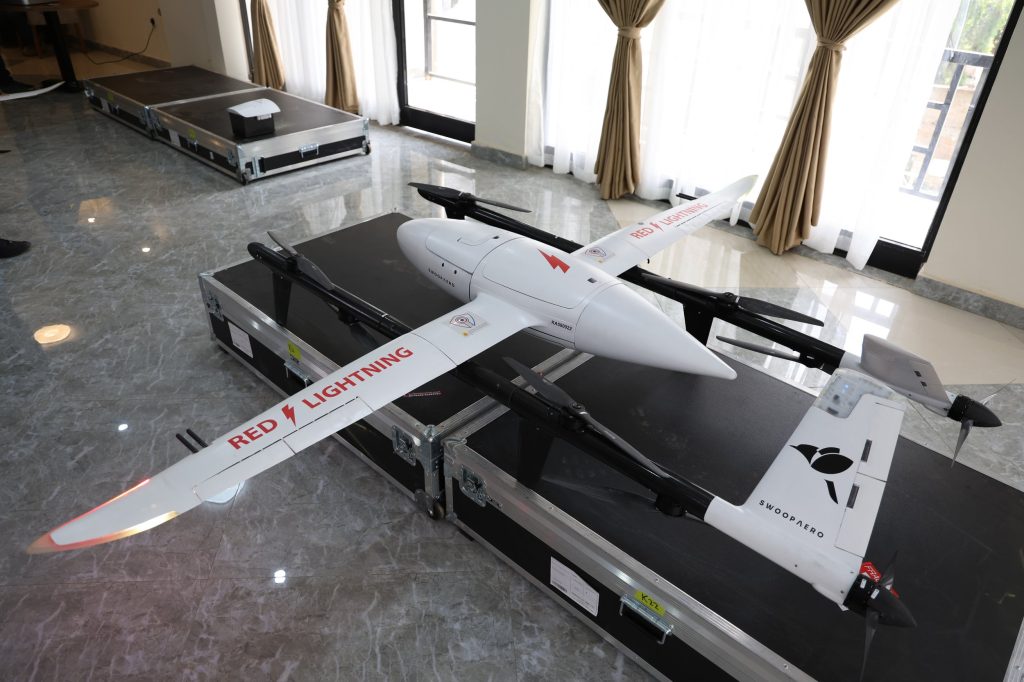Exciting Rental Fleet Updates as at April 2025
- DFH is now offering a simple credit card hold option for the value of the items you rent as the security deposit (EFT upfront no longer required).
- Your rental becomes free of charge if you decide to purchase the same item brand new within 14 days of the rental period.
- Rental fleet significantly enlarged as at March 2025, adding several units including Matrice 4 E, Matrice 4 T, H30T, M350 RTK, RTK3, flood lighting systems, tethered power solutions, M3M etc.
- We maintain a large and well managed Aus wide fleet of drones for dry hire. One of the models you are looking for may not be far from your location – call 13000 029 829 and ask for Rachel to get a quick heads up on the nearest location and best hire price for the item you need.
Contact Rachel our hire fleet manager:
1300 029 829
0490233192
Australian drone delivery company Swoop Aero has returned to sector headlines after a long period of maintaining a relatively low profile by playing a critical role in the recently completed trial of Ethiopia’s first UAV medical distribution system.
The nation’s unprecedented medical drone delivery network was organized by humanitarian organization Red Lightning, and wrapped up an initial 30-day test run in late November. A total of 44 flights were made by Swoop Aero Kite UAVs to six remote and underserved communities around Ethiopia during the pilot phase, delivering medical items that included a variety of both urgent and more commonly used supplies.
According to Red Lightning Swoop Aero drones delivered a total of 6,936 vaccine doses against tuberculosis, poliovirus, diphtheria, tetanus, pertussis, Hib, hepatitis B, and other diseases. The NGO said that quantity of inoculations flown in the first two days alone was enough to supply recipient communities for a month, marking major advance in medical distribution and access to treatment in distant areas of Ethiopia.
Swoop Aero’s Kite drones had previously proven their effectiveness and reliability in medical delivery operations across Africa in years before Ethiopia’s trial run. The UAV can be remotely piloted or autonomously deployed, flying up to 120 kilometers with a 3 kg payload on a single battery charge.
To reach the farthest-flung clinics in the project, a battery swap facility was established midway between destinations and the distribution hub, thereby extending the network’s reach to 240 kilometers. Swoop Aero’s fixed-wing drone takes off and lands vertically, providing both the greater flight efficiency of that craft design with the ease of use – and capability of deployment from almost any terrain – of a quadcopter.
The project was supported by Ethiopia’s health ministry and aided and funded by foreign businesses and NGOs, along with a $1 million grant. The effort not only brought critical medicines out to populations needing them most, but also gradually increased the drone network’s speed, efficiency, and cold chain vaccine preservation capabilities.
Red Lightning said evaluation of the scheme’s performance, and response from local communities, were overwhelmingly positive. As a result, the organization reports the trial has just been approved for a second phase, which will take place during another 90-day period sometime next year over an area of doubled size.
Written by Bruce Crumley
35-min video: T50 Full Spraying Demo
2-min video: Customer scouting stock yards, feral pigs and even mustering.
T30 demo, T40 demo, and T50 demo
8-min video: summary of the T50s flight modes available on controller screen
2-min video: see the high flow rate and penetration a DJI T50 can deliver
Video the T50 holding its droplets in a controlled vortex bubble over a rice plantation
Go to all our YouTube videos (demos, how-to videos, Shorts)
Get fast local quotes for contractor spraying or mapping work here
View dry-hire drone rental fleet and prices
DFH Batch Master chemical mixing stations
DFH aluminium enclosures for spray drones (2-min video)
CASA article: Drones taking agriculture sky high
AAUS: the leading association for uncrewed systems (drones, ROVs, robots) in Aus.
DJI Agriculture main site
Blackberry control action groups: Weeds Australia, VIC , NSW
Cotton Australia main site
© 2025 Drones For Hire. All rights reserved.
This article may not be reproduced, distributed, or transmitted in any form or by any means without prior written permission from the author or publisher, except in the case of brief quotations used for review or scholarly purposes.
Disclaimer: The information provided in this article is for general informational purposes only and does not constitute professional or legal advice. While efforts have been made to ensure the accuracy and relevance of the content, readers should consult with qualified experts or local authorities before making decisions related to agricultural drone use, regulations, or investments.

